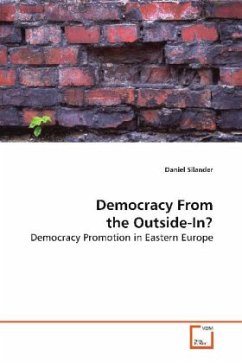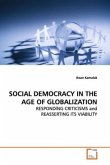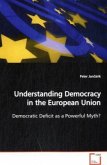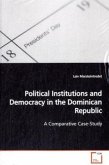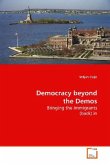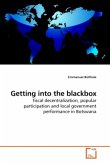This study explores the literature on factors
favorable to democratization; in particular the
phenomenon of democracy promotion in international
politics. It is argued that there has been a
domestic dominance, with international factors a
forgotten dimension. It is also argued that the
limited body of work dealing with international
factors has been empirical in nature. This study
sheds lights on one international factor in
democracy promotion. The theoretical contribution of
this study is the presented analytical framework for
democracy promotion. The empirical contribution is
to provide an improved understanding of democracy
promotion and democratization in postcommunist
Europe. This is done by analyzing the role of the EU
as democracy promoter in Slovakia, Belarus and FRY
from 1995 to 2003.
favorable to democratization; in particular the
phenomenon of democracy promotion in international
politics. It is argued that there has been a
domestic dominance, with international factors a
forgotten dimension. It is also argued that the
limited body of work dealing with international
factors has been empirical in nature. This study
sheds lights on one international factor in
democracy promotion. The theoretical contribution of
this study is the presented analytical framework for
democracy promotion. The empirical contribution is
to provide an improved understanding of democracy
promotion and democratization in postcommunist
Europe. This is done by analyzing the role of the EU
as democracy promoter in Slovakia, Belarus and FRY
from 1995 to 2003.

